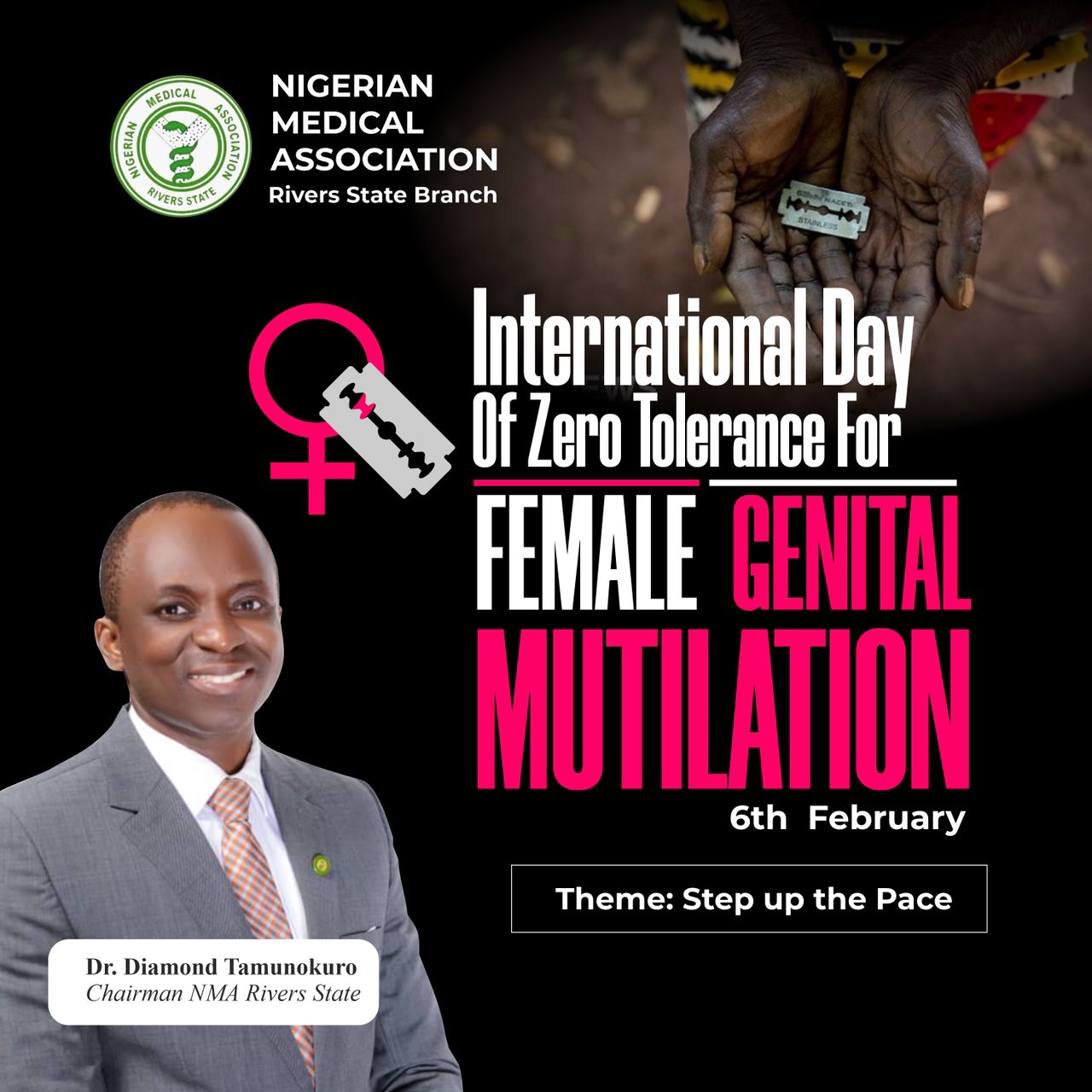The Chairman of NMA Rivers Dr Diamond Tamunokuro on behalf of SOC and SEC Commemorates The International Day for Zero Tolerance for Female Genital Mutilation (FGM) which is observed annually on February 6.
This day aims to raise awareness about the harmful practice of FGM, which affects millions of girls and women worldwide. The theme “Step Up the Pace” emphasizes the urgent need for collective action to eliminate FGM and accelerate progress toward its eradication.
In Nigeria, Female Genital Mutilation (FGM) is a deeply rooted cultural practice that affects many communities across the country. The prevalence and type of FGM can vary significantly by region, ethnicity, and religion.
According to various studies and reports, Nigeria has one of the highest numbers of FGM cases in the world, with millions of women and girls affected. The prevalence rates can vary widely; for instance, some regions have reported rates as high as 60-70%, while others have much lower rates. FGM is more common among certain ethnic groups, including the Yoruba, Ibo, and Hausa-Fulani. Each group may have different traditions and reasons for practicing FGM.
Types of FGM
- clitoridectomy (removal of the clitoris)
- Infibulation (narrowing of the vaginal opening).
- The most common type practiced in Nigeria is clitoridectomy.
Reasons for the Practice
- Cultural Beliefs and Social acceptance.
- Misconceptions
Health Implications
- FGM has serious health consequences, including severe pain, complications during childbirth, and long-term psychological effects.
- It can also increase the risk of infections and complications in future pregnancies.
Legal Framework
- Nigeria has laws against FGM, including the Violence Against Persons (Prohibition) Act of 2015, which criminalizes the practice. However, enforcement of these laws can be inconsistent, especially in rural areas where traditional practices are deeply entrenched.
Efforts to Combat FGM
- Awareness Campaigns: Various NGOs and international organizations are working to raise awareness about the dangers of FGM and to educate communities about the legal repercussions.
- Community Engagement: Programs that engage community leaders, including religious leaders and traditional rulers, have been effective in changing attitudes toward FGM. Engagement of Men and Boys in discussions about FGM to foster a broader understanding and to challenge harmful gender norms.
- Support Services: Providing healthcare and psychological support for survivors of FGM is crucial in addressing the long-term impacts of the practice.
Efforts to eliminate FGM in Nigeria require a multi-faceted approach that includes legal enforcement, community education, and support for affected individuals.
Continued advocacy and collaboration among government agencies, NGOs, and community members are essential to “step up the pace” in the fight against FGM and protect the rights and health of women and girls.
By “stepping up the pace,” stakeholders are called to commit to concrete actions that lead to a world free from FGM, ensuring the health, dignity, and rights of girls and women everywhere

